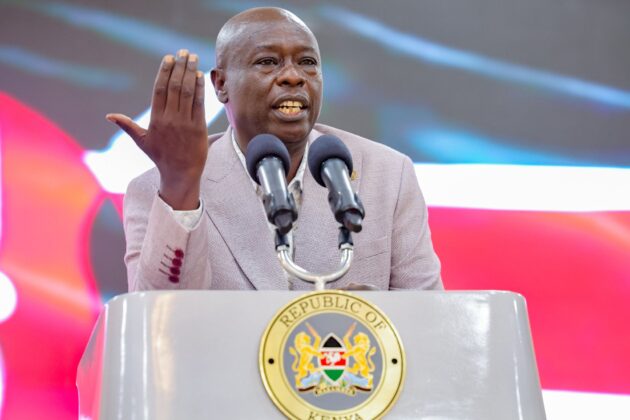
DP Gachagua asks State Agencies to use ADRs, not courts » Capital News
NAIROBI, Kenya, Apr 29 – Deputy President Rigathi Gachagua has asked Constitutional Commissions, Independent Offices (CCIOs) and other State agencies to use alternative conflict resolution mechanisms in resolving matters as opposed to courts.
Speaking when he officially opened the Executive and CCIOs Consultative Forum in Naivasha, Nakuru County, the Deputy President said Kenyans suffer when matters are prosecuted in court and the media.
Gachagua said his Office has been mandated by President William Ruto under Executive Order No. 2 of 2023 ensure seamless working of CCIOs without acrimony.
“I urge you to use my Office in settling disputes and conflicts. Already, we have settled a number of conflicts. It is not necessary to engage in the press. When we (government agencies) take each other to court, we hire lawyers who are paid by the public. There is no business going out there to hire a lawyer,” he said.
Gachagua said the Office has successfully resolved issues between the Office of the Inspector General of Police and the Police Service Commission while discussions are ongoing between the Ministry of Education and the Teachers Service Commission, among others and the results are promising.
The Deputy President said court proceedings are an unfair process to Kenyans, now that that the country is focusing resources on development.
He said a lot of resources will be saved to increase the financial and technical capacity of State Agencies to implement projects and programmes for realisation of the Kenya Kwanza Plan.
While saying over 80 percent of matters can be sorted through dialogue as underpinned by the Executive Order and other frameworks of alternative conflict resolution, the Deputy President said internal capacity can be used to pursue the remaining matters in court.
“Staff in the legal departments are paid every month. They are competent. There is no reason for committing millions of shillings in hiring lawyers,” he said.
The Deputy President called on the CCIOs to work with each other, saying there is value in cooperation and collaboration.
“There is no harm in talking. But there is danger in walking alone. We serve the same people. Let us work together in serving the people. We (the Office of the Deputy President) are ready to initiate dialogue instead of tearing ourselves apart in public,” he said.
The Deputy President assured the CCIOs that President Ruto respects the independence of the CCIOs and other arms of Government as key mechanisms of propelling the Executive to deliver to Kenyans.
“President Ruto has on a number of occasions said that constructive criticism of his Administration will enable him to deliver better on the Bottom up Economic Transformation Agenda. It is a requirement for democracy, rule of law and ultimately- good governance. Delivering development as underpinned by the Bottom-Up Economic Transformation Agenda (BETA), requires input from all players,” he said.
The Deputy President said the Consultative Forum offers the Executive an opportunity to engage with the CCIOs for feedback and collective strategy on development. He challenged the CCIOs to align their strategic plans to the BETA.
“While we assure you of autonomy in your work, we encourage truth premised on objectivity and sanctity of data as opposed to alarmist subjective reports. This will help us make the necessary adjustments. Again, as directed by the Executive Order No.2, we are ready to work with you in implementation of recommendations of your reports,” he said.
He added that the economy is improving, more money will be allocated to the CCIOs for programmatic work.
This was in response to the Chairperson of the CCIOs and the Chairman of the National Lands Commission Gershom Otachi, who, among other issues, said limited funds have impeded implementation of projects.
As mandates of some commissioners near their ending, Mr Gachagua promised to work with the relevant agencies in expediting the process of appointment of new office holders to avoid possible negative impact on service delivery.
Chief Justice Martha Koome asked the CCIOs to also establish internal mechanisms of holding themselves accountable, adding that even as they are independent, there must be structures of self-oversight.
On the other hand, the Council of Governors Anne Waiguru challenged the CCIOs to entrench devolution in their service delivery to reach the grassroots.
